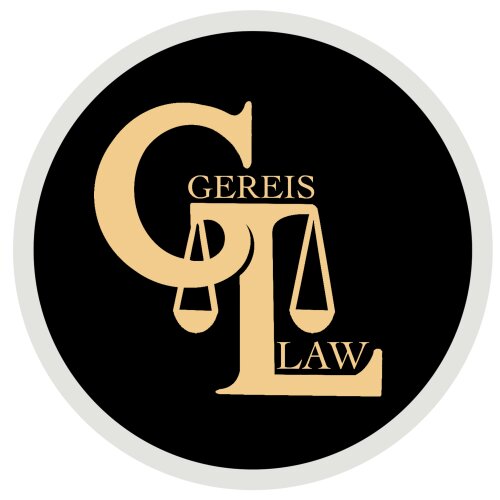Best Appeal Lawyers in Vermont
Share your needs with us, get contacted by law firms.
Free. Takes 2 min.
Or refine your search by selecting a city:
List of the best lawyers in Vermont, United States
About Appeal Law in Vermont, United States
Appeal law in Vermont allows individuals or parties to challenge a legal decision made by a lower court, government agency, or tribunal. The Vermont appellate process offers a critical path for those who believe a legal mistake has affected the outcome of their case. Appeals can address civil, criminal, family, and administrative matters. Cases in Vermont are typically appealed from the Superior Court to the Vermont Supreme Court. Appellate courts review the record from the lower court for legal errors rather than conducting new trials or reconsidering factual determinations.
Why You May Need a Lawyer
Appealing a legal decision is complex, involving strict procedures, deadlines, and detailed legal arguments. Common situations requiring legal help in appeals include:
- Losing a case in a Vermont trial court and believing the court made an error in law or procedure
- Facing an unfavorable family court decision, such as child custody or divorce settlements
- Receiving a criminal conviction and seeking to overturn or reduce the sentence
- Challenging administrative decisions, such as denial of professional licenses or benefits
- Needing to respond to an appeal filed by the opposing party
Given the technical nature of appeals, having an attorney improves the likelihood of correctly presenting your arguments and understanding the possible outcomes.
Local Laws Overview
Appeals in Vermont are governed by the Vermont Rules of Appellate Procedure as well as state statutes. Key aspects include:
- Appeals are generally made to the Vermont Supreme Court, except for some small claims and specialized matters
- Strict time limits apply for filing a notice of appeal, usually 30 days after the entry of the judgment or order
- Only issues raised and preserved in the original case can usually be argued on appeal
- Appellate courts review legal errors rather than factual disputes
- Written briefs are required, and in some cases, oral arguments may be scheduled
- Appeals are not new trials - the appellate court reviews the existing record and legal arguments
- The appellate decision can uphold, reverse, or remand the case for further proceedings
Frequently Asked Questions
What is an appeal?
An appeal is a legal process where a higher court reviews the decision of a lower court to determine if there were errors affecting the outcome.
Can I introduce new evidence during my appeal?
No, appeals are limited to the evidence and record from the original trial. The appellate court does not consider new testimony or documents.
What types of cases can be appealed in Vermont?
Most final judgments from Vermont state courts, including criminal, civil, probate, juvenile, and family cases, can be appealed. Some administrative agency decisions are also appealable.
How much time do I have to file an appeal in Vermont?
You must file a notice of appeal typically within 30 days of the entry of judgment. Missing this deadline can forfeit your right to appeal.
Do I have to pay for an appeal?
Yes, there are filing fees and potential costs for transcripts and preparation of briefs. People with low income can apply for a waiver of these fees.
How long does the appeal process take?
The appeal process can take several months to over a year, depending on the court’s schedule and complexity of the case.
Can the appellate court change the verdict outright?
The appellate court can affirm, reverse, or remand the case for a new trial or further proceedings. It generally does not make factual findings or new verdicts.
Do I need a lawyer for an appeal?
While not required, having a lawyer is strongly recommended due to the strict rules and high level of legal analysis involved in appeals.
What happens if I win my appeal?
If you win, the appellate court may reverse the original decision, order a new trial, or direct the lower court to correct specific errors.
Can I appeal more than once?
Appeals to the Vermont Supreme Court are usually final. Further appeals may be available to the federal court system only in rare circumstances involving federal legal questions.
Additional Resources
Below are valuable resources to assist with appeals in Vermont:
- Vermont Supreme Court - Handles most appeals in the state
- Vermont Judiciary Self-Help Center - Offers guides and assistance for individuals navigating the court system
- Vermont Bar Association - Provides lawyer referral services and legal resources
- Legal Services Vermont - Offers free legal help for people with low income
- Office of the Defender General - Provides appellate counsel for indigent criminal defendants
Next Steps
If you believe you have grounds for an appeal in Vermont, time is critical because of strict filing deadlines. Consider the following steps:
- Review the judgment or order to confirm the appealable issues
- Consult with a qualified Vermont appeals attorney to assess your options and likelihood of success
- Ensure you gather important documents such as court orders, transcripts, and records from your case
- Submit a notice of appeal within the applicable time frame
- Begin preparing your appellate brief with the assistance of legal counsel
Do not delay in seeking legal guidance, as appeals require prompt action and specialized knowledge to maximize your chances for a positive outcome.
Lawzana helps you find the best lawyers and law firms in Vermont through a curated and pre-screened list of qualified legal professionals. Our platform offers rankings and detailed profiles of attorneys and law firms, allowing you to compare based on practice areas, including Appeal, experience, and client feedback.
Each profile includes a description of the firm's areas of practice, client reviews, team members and partners, year of establishment, spoken languages, office locations, contact information, social media presence, and any published articles or resources. Most firms on our platform speak English and are experienced in both local and international legal matters.
Get a quote from top-rated law firms in Vermont, United States — quickly, securely, and without unnecessary hassle.
Disclaimer:
The information provided on this page is for general informational purposes only and does not constitute legal advice. While we strive to ensure the accuracy and relevance of the content, legal information may change over time, and interpretations of the law can vary. You should always consult with a qualified legal professional for advice specific to your situation.
We disclaim all liability for actions taken or not taken based on the content of this page. If you believe any information is incorrect or outdated, please contact us, and we will review and update it where appropriate.
Browse appeal law firms by city in Vermont
Refine your search by selecting a city.














